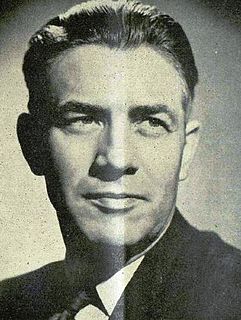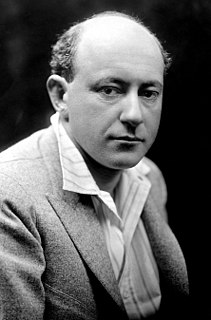A Quote by Aleister Crowley
Astrology has no more useful function than this, to discover the inmost nature of a man and to bring it out into his consciousness, that he may fulfil it according to the law of light.
Related Quotes
In certain cases, a man blind from birth may have an operation performed which gives him his sight. The result: frequently misery, confusion, disorientation. The light that illumines the madman is an unearthly light, but I do not believe it is a projection, an emanation from his mundane ego. He is irradiated by a light that is more than he. It may burn him out.
The wise man does nothing but what can be done openly and without falseness, nor does he do anything whereby he may involve himself in any wrong-doing, even where he may escape notice. For he is guilty in his own eyes before being so in the eyes of others; and the publicity of his crime does not bring him more shame than his own consciousness of it.
People who think of themselves as tough-minded and realistic, among them influential political leaders and businessmen as well as go-getters and hustlers of smaller caliber, tend to take it for granted that human nature is selfish and that life is a struggle in which only the fittest may survive. According to this philosophy, the basic law by which man must live, in spite of his surface veneer of civilization, is the law of the jungle. The "fittest" are those who can bring to the struggle superior force, superior cunning, and superior ruthlessness.
To act and act wisely when the time for action comes, to wait and wait patiently when it is time for repose, put man in accord with the rising and falling tides (of affairs). So that with nature and law at his back, and truth and beneficence as his beacon light, he may accomplish wonders. Ignorance of this law results in periods of unreasoning enthusiasm on the one hand, and depression on the other. Man thus becomes the victim of the tides when he should be their Master.
In the first section of the Doctrine and Covenants we read that 'the Lord shall come to recompense unto every man according to his work, and measure to every man according to the measure which he has measured to his fellow man.' (D&C 1:10.) This principle, showing the manner by which God will judge us, puts a new light upon the commandment to love our neighbors as ourselves, and should persuade us to take that law seriously.
Lower the Law and you dim the light by which man perceives his guilt; this is a very serious loss to the sinner rather than a gain; for it lessens the likelihood of his conviction and conversion. I say you have deprived the gospel of its ablest auxiliary [its most powerful weapon] when you have set aside the Law. You have taken away from it the schoolmaster that is to bring men to Christ . . . They will never accept grace till they tremble before a just and holy Law. Therefore the Law serves a most necessary purpose, and it must not be removed from its place.
Take the happiest man, the one most envied by the world, and in nine cases out of ten his inmost consciousness is one of failure. Either his ideals in the line of his achievements are pitched far higher than the achievements themselves, or else he has secret ideals of which the world knows nothing, and in regard to which he inwardly knows himself to be found wanting.
As each one of us awakens, it is like a light going on, followed by another light, another light, and another light. The darkness of human unconsciousness is slowly, gradually and gently lit, until there comes a day when there is more light than dark, more consciousness than unconsciousness , more joy than pain, ...more truth than illusion. That would indeed be a day for celebration.
Man has made 32 million laws since THE COMMANDMENTS were handed down to Moses on Mount Sinai more than three thousand years ago, but he has never improved on God's law. THE TEN COMMANDMENTS are the principles by which man may live with God and man may live with man. They are the expressions of the mind of God for His creatures. They are the charter and guide of human liberty, for there can be no liberty without the law.
As the smallest drop of water detached from the ocean contains all the qualities of the ocean, so man, detached in consciousness from the Infinite, contains within him its likeness; and as the drop of water must, by the law of its nature, ultimately find its way back to the ocean and lose itself in its silent depths, so must man, by the unfailing law of his nature, at last return to his source, and lose himself in the great ocean of the Infinite.
Thus ordered thinking arises out of the ordered course of nature in which man finds himself, and this thinking is from the beginning nothing more than the subjective reproduction of the regularity according to the law of natural phenomena. On the other hand, this reproduction is only possible by means of the will that controls the concatenation of ideas.
The whole purpose of spiritual direction is to penetrate beneath the surface of a man's life, to get behind the façade of conventional gestures and attitudes which he presents to the world, and to bring out his inner spiritual freedom, his inmost truth, which is what we call the likeness of Christ in his soul.
If idioms are more to be born than to be selected, then the things of life and human nature that a man has grown up with--(not that one man's experience is better than another's, but that it is 'his.')--may give him something better in his substance and manner than an over-long period of superimposed idiomatic education which quite likely doesn't fit his constitution. My father used to say, 'If a poet knows more about a horse than he does about heaven, he might better stick to the horse, and some day the horse may carry him into heaven'







































